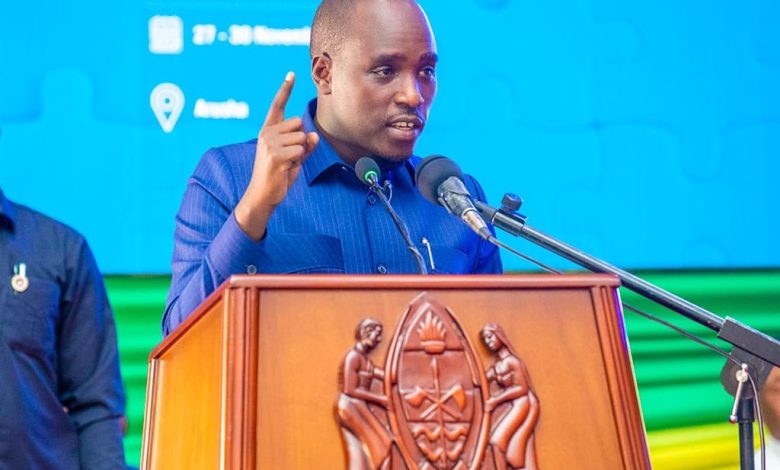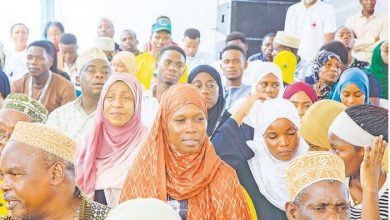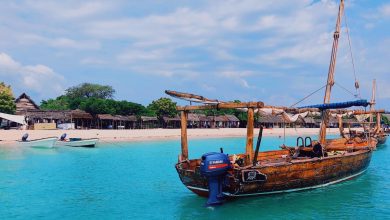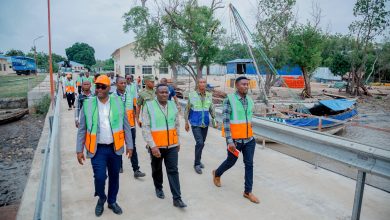Samia’s nuclear energy vision set to power economy

DAR ES SALAAM: TANZANIA’S Deputy Prime Minister Dr Dotto Biteko said in Kigali, Rwanda, on 30 June that President Samia Suluhu Hassan has directed the Ministry of Energy to include nuclear power in the country’s national electricity grid.
Dr Biteko also said the government is moving forward with various initiatives, including plans to start nuclear power production, noting that nuclear electricity is cheaper than other more environmentally harmful sources.
From my perspective as an economist and investment strategist, the Deputy Prime Minister’s remarks align well with the World Bank’s recent decision, on 11 June, to lift its long-standing ban on financing nuclear energy projects.
Under President Samia’s leadership, and in light of Dr Biteko’s speech, the country stands to benefit significantly from this policy shift. Industry experts agree that the climate crisis and rising power demand—driven by the growth of energy-intensive Artificial Intelligence (AI) technologies—are pushing many governments, including Tanzania under President Samia, to reconsider nuclear energy.
This shift aligns with President Samia’s directives to the newly appointed TANESCO Managing Director when he was sworn in. Historically, financing nuclear projects has faced strong opposition due to past disasters such as Fukushima (2011), Chernobyl (1986) and Three Mile Island (1979).
However, a major shift came at the COP28 climate summit in Dubai in 2023, where over 30 countries pledged to triple global nuclear capacity by 2050 to meet Paris Agreement climate goals.
The World Bank had not supported a nuclear project since 1959, largely due to opposition from Germany and concerns over nuclear proliferation.
Lifting this ban is both a strategic move and a significant opportunity for Tanzania to enter the nuclear energy sector by pursuing uranium-based electricity generation through the financing of small modular reactors.
Recently, President Samia directed Lazaro Twange, the new Director General of TANESCO, to explore nuclear power for electricity generation, focusing on developing the uranium project in Tunduru, Ruvuma.
The initiative aims to boost the country’s nuclear energy capacity and leverage its significant uranium resources.
President Samia emphasised that Tanzania must no longer be passive about its uranium deposits, especially as other countries use this resource as a key part of their energy strategies.
Tanzania’s uranium reserves, estimated at 58,500 tonnes, should primarily benefit Tanzanians before any exports are considered.
ALSO READ: Tanzania opts to use nuclear energy to generate electricity
Although the country has had uranium for a long time, concerns over its hazardous nature have limited substantial investment in the sector.
During Namibian President Netumbo Nandi-Ndaitwah’s visit to Tanzania, a significant topic of discussion with Dr Samia was the utilisation of uranium for electricity generation.
Namibia ranks as the third-largest producer of uranium worldwide, positioning itself as a crucial contributor to the global nuclear energy landscape among the SADC member states and beyond.
Tanzania has undoubtedly made significant investments in enhancing electricity generation through hydropower and natural gas.
The completion of the Julius Nyerere Hydropower Project (JNHPP) requires a shift towards alternative energy sources, such as renewables and nuclear, to ensure the stability of the national grid and meet the growing demands of industry.
Also, the country should also pursue nuclear power for electricity generation through a welldesigned strategic framework.
While technical matters can be handled by industry experts, securing adequate financing is crucial to ensure the project’s success and align with national interests.
Local banks must play a key role, with the TIB Development Bank standing out as the best fit due to its mandate and expertise in supporting such initiatives.
While views on financing sources may vary and external funding remains important, it is crucial to recognise that TIB Development Bank, as a wholly government-owned Development Finance Institution (DFI), plays a key role in supporting government efforts as Tanzania advances into the nuclear power sector.
One approach is for TIB to represent the government by working closely with TANESCO as a domestic financial intermediary.
In this role, it would coordinate capital from multiple sources, including sovereign budget allocations, the World Bank’s newly authorised nuclear financing window, other multilateral development finance institutions like AfDB and IsDB, bilateral partners such as Russia’s Rosatom, China, Korea, the US and private investors.
As an investment banker and economic analyst, the blended finance structures devised by TIB for the government effectively reduce the weighted average cost of capital associated with financing nuclear projects.
This has the potential to make atomic energy initiatives in the country financially viable, while also easing pressure on the national budget.
Furthermore, the TIB Development Bank can identify potential risks and suggest strategies for mitigating risks and enhancing credit on behalf of the government. Nuclear projects involve significant construction, operational and political uncertainties.
TIB, representing the government, is well-placed to guide on tackling challenges related to partial credit guarantees and political risk insurance by partnering with organisations such as the African Trade Insurance Agency or MIGA.
Moreover, it can offer valuable insights on such issues as first-loss capital structures, among others.
Therefore, TIB’s involvement in the project on behalf of the government will encourage the attraction of private co-financing by alleviating the associated risks.
Thirdly, the bank could play a pivotal role in assisting the project implementer by providing support in project preparation and transaction advisory services on behalf of the government.
A notable deficiency in nuclear initiatives is the absence of thorough feasibility studies, comprehensive environmental and social impact assessments (ESIAs), sound bankability evaluations and rigorous regulatory compliance analyses.
The government, through TIB, can establish or strengthen a Nuclear Project Preparation Facility in collaboration with esteemed entities such as the World Bank, the IAEA, the African Development Bank (AfDB) and various other technical partners.
This may facilitate a more expedient attainment of financial closure for projects, in alignment with global standards.
Fourthly, the promotion of local content can be achieved through the establishment of financing mechanisms that support local suppliers, such as those in construction, cement, steel, logistics, security and auxiliary services, thereby increasing the involvement of Tanzanian enterprises in the nuclear value chain.
This will ensure that nuclear energy generates domestic economic spillovers, enhancing job creation, facilitating technology transfer and promoting national ownership.
As a government-owned Development Finance Institution, TIB is positioned to collaborate with the Ministries of Finance and Planning, the Bank of Tanzania and the Debt Management Office.
This coordination is essential to ensure that borrowing aligns with the country’s frameworks for debt sustainability and adheres to the thresholds established by the IMF and World Bank’s Debt Sustainability Analysis.
Such measures are crucial in preventing macroeconomic instability while simultaneously facilitating the acquisition of long-term funding.
By capitalising on the World Bank’s decision to lift the ban on nuclear energy for electricity generation, TIB Development Bank stands poised to become a pivotal player in Tanzania’s energy financing landscape.
It has the potential to mobilise, structure and deploy funds specifically for nuclear energy projects.
With adequate backing, TIB could also function as the government’s long-term financing institution, addressing funding gaps that private capital—particularly foreign investment—may be reluctant or unable to fill without involvement from its strategic policy bank.
This initiative, acting as a government representative, could effectively integrate the government’s vision, private sector investment, multilateral financing and technical expertise into a single, well-coordinated domestic framework.
In my view, such a unified approach would significantly advance President Samia’s ambitions for a sustainable, diversified and secure energy future for Tanzania.






165746 824755Hey! Good stuff, do tell us when you post something like that! 578285
93054 78068I like this weblog its a master peace ! Glad I observed this on google . 739268